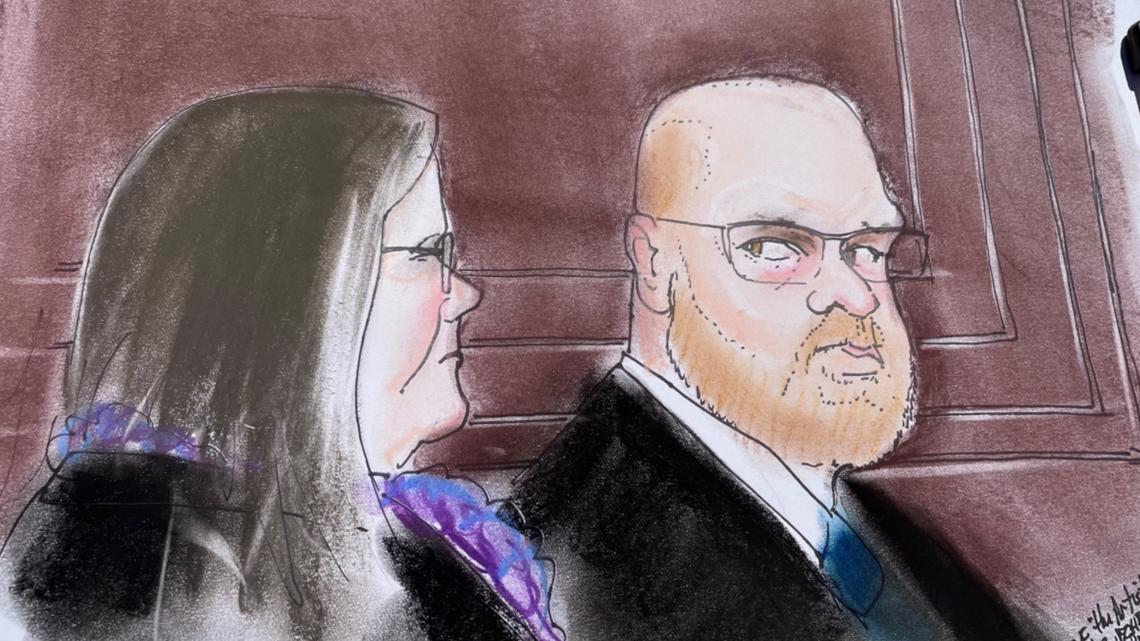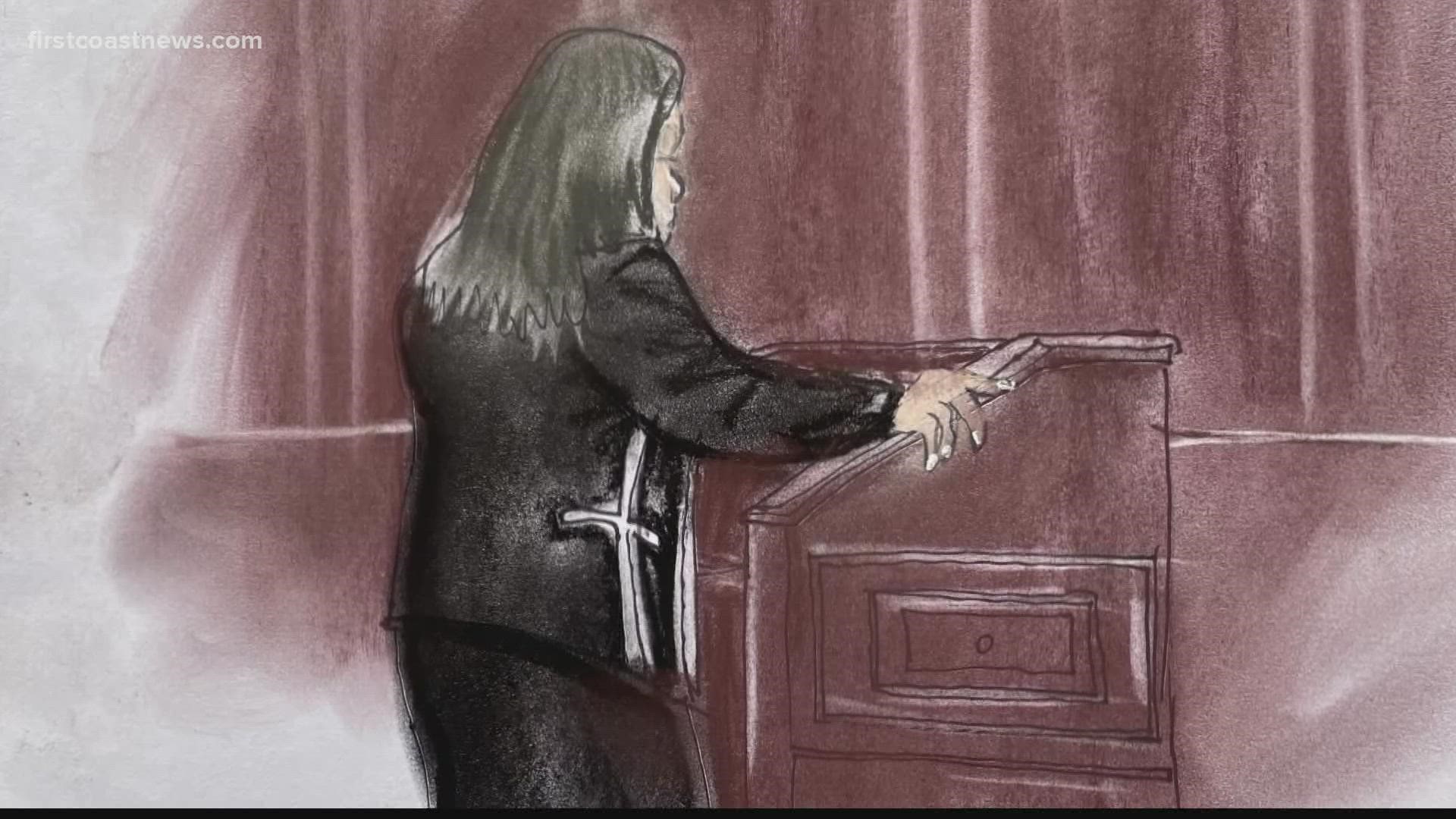BRUNSWICK, Ga. — Gregory and Travis McMichael, two of the three men convicted of murdering Ahmaud Arbery, pleaded guilty to federal hate crime charges as part of a plea deal in the federal case Monday. That plea deal, however, fell apart when both Arbery's family and the judge objected to the terms of the deal.
The deal would've allowed the McMichaels to serve the first 30 years of their sentences in a federal prison instead of a state penitentiary. In turn, the men would plead guilty and admit their crime was motivated by racial hatred. A judge sentenced both to life without parole in January in the state case.
Attorney Esther Panitch, who’s not affiliated with the federal hate crimes case against the men, said it's not unusual for a judge to not accept a plea deal in federal court.
“Federal court is different than state court," she said. "You'd normally, in state court, the state and the defendant can make a deal that the judge normally accepts. In federal court, part of the plea colloquy that the judge always says is, 'I don't really care what agreement, defendant, you make with the government. Ultimately, it's up to me to decide if I'm going to accept your plea, and whatever sentence I'm going to give you. Whatever agreement you may have with the government is a recommendation as far as I'm concerned.'"
In this case, Panitch said she doesn't think Arbery's family's emotional speeches asking the judge to reject the plea deal was what caused her to do just that.
"The government was asking the court to order something that the judge really doesn't have the authority to order," she said.
"Once she sentences the defendants, then it's up to the Bureau of Prisons to decide where the defendants serve their time, and the Bureau of Prisons will coordinate with the state agencies, such as the Georgia Department of Corrections, who would be responsible for the men serving their sentences on the state cases," Panitch added. "So, the judge really doesn't have the authority to say where these men are going to serve their sentence, and that was part of the plea deal."
U.S. District Court Judge Lisa Godbey Wood said Monday that she didn't agree with the stipulations, particularly that it locks her into the 30-year sentence. She did acknowledge Arbery's family's speeches.
In those speeches, Arbery's parents told the judge that they didn't agree to the Department of Justice's deals with the McMichaels. Panitch said she isn't shocked that Arbery's family said they weren't told about the plea deals.
"Having dealt with the Department of Justice for as long as I have, as a defense attorney, I'm not surprised that there's a disconnect. If people really knew what was going on in federal courts, and in their U.S. Attorney's offices, I think they'd be really surprised," she said.
"But I'm not surprised as a defense attorney, and I think if you ask a lot of defense attorneys, they wouldn't be surprised either," Panitch said.
Assistant Attorney General Kristen Clarke with the DOJ said the following in response.
“We respect the court’s decision to not accept the sentencing terms of the proposed plea and to continue the hearing until Friday. The Justice Department takes seriously its obligation to confer with the Arbery family and their lawyers both pursuant to the Crime Victim Rights Act and out of respect for the victim. Before signing the proposed agreement reflecting the defendants’ confessions to federal hate crimes charges, the Civil Rights Division consulted with the victims’ attorneys. The Justice Department entered the plea agreement only after the victims’ attorneys informed me that the family was not opposed to it.”
Arbery family attorney Lee Merritt said this is a misrepresentation. He said he was consulted, but said federal prosecutors didn't tell him all of the terms of the agreement. Those terms included moving the McMichaels to a federal facility, something the family has consistently opposed.
"It's not uncommon for the members of the Department of Justice to represent one thing when there are reasons to believe it wasn't accurate to begin with," Panitch said.
Panitch said prosecutors in federal cases don't have to get the family to sign off on a plea deal or consult with the family.
“I don't know that they have to [consult with the family] legally," Panitch said. "Unlike in state court in Georgia, they do have to, but the victims don't control the prosecution [in federal court]. So, because the prosecutor doesn't represent the victim, the prosecutor represents the jurisdiction that they work for.”


"The lead prosecutors in each federal district are appointed by the president. They are not elected officials. They do not have to go campaign for their jobs. They do not have to listen to the victims, and they will still have jobs. So, they don't have the same type of motivation that state prosecutors do to listen to victims," she said.
Since the judge denied the deals for both, the McMichaels have until Friday to decide whether to withdraw their guilty pleas and go to trial. Panitch said if they do, it may take a little longer than expected to find a fair and impartial jury since the defendants both just indicated a willingness to admit to a hate crime.
“They're going to have to pick a jury the same they would have to pick a jury with these potential jurors knowing about the guilty verdicts in the state case," Panitch explained. "So, they're going to have to ask the jurors in voir dire, 'what do you know about this case? Have you already fixed an opinion on this case, or can you listen to the evidence with an open mind and make a decision based only on what you hear in the courtroom."
"It's possible the lawyers can say there are multitude of reasons somebody may have pled guilty already. Even if they don't believe they really were, maybe they thought they were getting the benefit of a bargain that no longer exists. So, you know, there are reasons that lawyers could put out there if it becomes an overwhelming concern among the potential jury pool," Panitch added.
If the McMichaels don't withdraw their guilty pleas, their sentences will be up to the judge. A plea deal was not offered to William Roddie Bryan, the third man convicted of murdering Arbery. The federal trial is set to start Monday.

